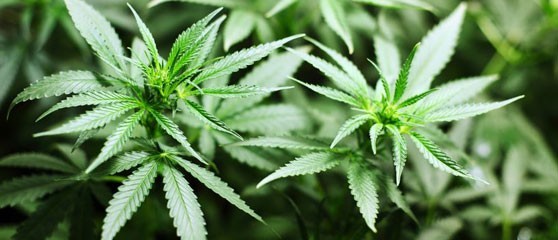A court in Georgia has ruled that people must not be imprisoned for possessing cannabis for personal use; however, it remains to be seen if this reform will have a significant impact in mitigating the country’s repressive drug laws.
The lawsuit, which was initiated by the Public Defender’s Office (PDO) in the former Soviet republic, argued that imprisoning a person for personal cannabis possession or use constituted “strict and degrading punishment”, and was thus unconstitutional.
The case took place in Georgia’s Constitutional Court on December 22, and resulted in a successful ruling for the PDO. In a statement, the Court said that it ruled in favour of reduced penalties because the laws “referring to the use of a small amount of marijuana […] are unconstitutional”. In 2015, the Court identified the quantity considered “small” to be anything below 70 grams.
The Court also ruled in December that no one may be imprisoned simply because a urine test finds evidence of prior cannabis use.
Despite these rulings, it is unclear how much change will actually occur.
Zurab Japaridze – a former MP and leader of the liberal Girchi party – has warned that the consequences of the court’s ruling were ambiguous as “no amendments to the law have been passed, and as we know [the authorities] don’t plan to make any serious changes [to the law]".
Japaridze has called for the outright legalisation of the country’s cannabis industry, and has advocated a similar approach to that of the US state of Colorado. He has proclaimed that his party is “not fighting for marijuana use; we are fighting for basic freedoms”.
The campaign for cannabis reform in Georgia is particularly noteworthy, as the implementation of harsh drug policies has been strict in the past decade.
In 2006, two years into the administration of then-president Mikheil Saakashvili, Georgia began introducing strict penalties for cannabis offences as part of the government’s “zero tolerance” approach to minor crime.
Among the new regulations was Joint Decree #1049-233n, which outlined procedures for law enforcement to take urine samples from members of the public if there is a suspicion of illegal drug use.
As TalkingDrugs reported in October, the decree demands that someone testing positive for drug use must pay a fine of 500 GEL ($183) – more than half of the average Georgian monthly salary. Prior to last month’s ruling, the decree also allowed for someone to be imprisoned for up to a year for testing positively.
In 2006, the introduction of Article 260 to the Georgian Criminal Code led to possession of a small quantity of cannabis being punished by up to 11 years in prison, while possessing a large quantity could be punished by between seven and 14 years.
In 2015, amendments reduced these punishments to six years for a small quantity, and between five and eight years for a large quantity.
Despite the apparent reduction of punitive measures, people who commit cannabis-related offences are still under threat by authorities’ extrajudicial behaviour. In one recent example, a young man, Demur Sturua, committed suicide after allegedly being subject to violence and harassment by police after testing positive for cannabis.
In his suicide note, Sturua said that police officers beat him and threatened to “accuse me of things that I had no connection with” if he didn’t tell them “whether someone was growing marijuana in the villages”.
Indeed, a 2013 report by Transparency International warned that “entrenched corruption [is challenging] good governance in Georgia”.
The government’s approach appears to be falling out of favour with the wider population; a government-run survey indicates that around 70 per cent of people support the decriminalisation of cannabis use, Democracy & Freedom Watch reports. Some prominent politicians have also voiced opposition to the status quo.
The continuation of urine testing, corruption and violence among police, highlight the ineffectiveness of modest reforms, such as the recent court ruling. It seems that a more clear and concrete policy approach is needed to separate cannabis from criminality.
There is potential for further change on the horizon. The White Noise Movement, a group of Georgian drug policy reform activists, have put forward a lawsuit against the government in favour of legalising personal cultivation of cannabis. The Constitutional Court will hear the case on January 25.


